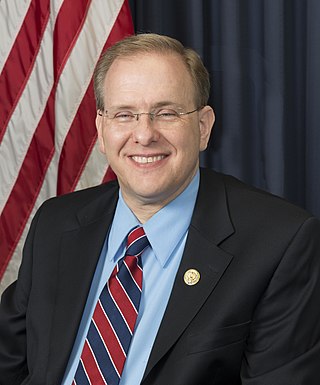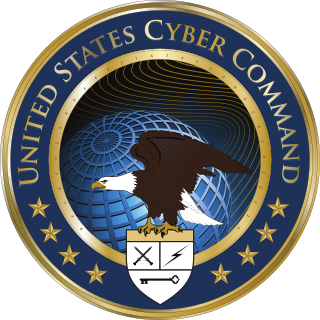This article needs to be updated.(February 2019) |
The United States Senate Armed Services Subcommittee on Cybersecurity is one of seven subcommittees within the Senate Armed Services Committee.
This article needs to be updated.(February 2019) |
The United States Senate Armed Services Subcommittee on Cybersecurity is one of seven subcommittees within the Senate Armed Services Committee.
The Cybersecurity Subcommittee has primary jurisdiction over all policies and programs related to cyber forces and capabilities. The subcommittee also oversees the United States Cyber Command and the cyber components of other United States Department of Defense commands and agencies.
| Majority | Minority |
|---|---|
|
|
| Ex officio | |
|
|
| Majority | Minority |
|---|---|
|
|
| Ex officio | |
|
|
| Majority | Minority |
|---|---|
|
|
| Ex officio | |
|
|
| Majority | Minority |
|---|---|
|
|
| Ex officio | |
|
|

The Committee on Armed Services is a committee of the United States Senate empowered with legislative oversight of the nation's military, including the Department of Defense, military research and development, nuclear energy, benefits for members of the military, the Selective Service System and other matters related to defense policy. The Armed Services Committee was created as a result of the Legislative Reorganization Act of 1946 following the U.S. victory in the Second World War. The bill merged the responsibilities of the Committee on Naval Affairs and the Committee on Military Affairs.

James R. Langevin is an American politician who served as the U.S. representative for Rhode Island's 2nd congressional district from 2001 to 2023. A member of the Democratic Party, he is the first quadriplegic to serve in Congress; Langevin was appointed to be the first quadriplegic speaker pro tempore of the U.S. House of Representatives in 2019. Langevin did not seek reelection in 2022.

Keith Brian Alexander is a retired four-star general of the United States Army, who served as director of the National Security Agency, chief of the Central Security Service, and commander of the United States Cyber Command. He previously served as Deputy Chief of Staff, G-2 (Intelligence), United States Army from 2003 to 2005. He assumed the positions of Director of the National Security Agency and Chief of the Central Security Service on August 1, 2005, and the additional duties as Commander United States Cyber Command on May 21, 2010.
The Australian Intelligence Community (AIC) and the National Intelligence Community (NIC) or National Security Community of the Australian Government are the collectives of statutory intelligence agencies, policy departments, and other government agencies concerned with protecting and advancing the national security and national interests of the Commonwealth of Australia. The intelligence and security agencies of the Australian Government have evolved since the Second World War and the Cold War and saw transformation and expansion during the Global War on Terrorism with military deployments in Afghanistan, Iraq and against ISIS in Syria. Key international and national security issues for the Australian Intelligence Community include terrorism and violent extremism, cybersecurity, transnational crime, the rise of China, and Pacific regional security.
The House Armed Services Subcommittee on Readiness is a subcommittee of the House Armed Services Committee in the United States House of Representatives.
The Subcommittee on Intelligence and Special Operations is a subcommittee of the House Armed Services Committee in the U.S. House of Representatives. During the 112th Congress, it was known as the Subcommittee on Emerging Threats and Capabilities, and before that as the Subcommittee on Terrorism, Unconventional Threats and Capabilities. From the 113th–116th Congresses it was named the Subcommittee on Intelligence, Emerging Threats and Capabilities
House Armed Services Subcommittee on Tactical Air and Land Forces is a subcommittee of the House Armed Services Committee in the United States House of Representatives.
The House Armed Services Subcommittee on Strategic Forces is a subcommittee of the House Armed Services Committee in the United States House of Representatives.
House Armed Services Subcommittee on Seapower and Projection Forces is a subcommittee of the House Armed Services Committee in the United States House of Representatives.
The Senate Armed Services Subcommittee on Airland is one of seven subcommittees within the Senate Armed Services Committee.
The Senate Armed Services Subcommittee on Personnel is one of seven subcommittees within the Senate Armed Services Committee.
The Senate Armed Services Subcommittee on Seapower is one of seven subcommittees within the Senate Armed Services Committee.
The Senate Armed Services Subcommittee on Strategic Forces is one of seven subcommittees within the Senate Armed Services Committee.

United States Cyber Command (USCYBERCOM) is one of the eleven unified combatant commands of the United States Department of Defense (DoD). It unifies the direction of cyberspace operations, strengthens DoD cyberspace capabilities, and integrates and bolsters DoD's cyber expertise.

The Cyber Intelligence Sharing and Protection Act was a proposed law in the United States which would allow for the sharing of Internet traffic information between the U.S. government and technology and manufacturing companies. The stated aim of the bill is to help the U.S. government investigate cyber threats and ensure the security of networks against cyberattacks.

Michael S. Rogers is a retired four-star admiral of the United States Navy. Rogers served as the second commander of the United States Cyber Command (USCYBERCOM) from April 2014 to May 2018 while concurrently serving as the 17th director of the National Security Agency (NSA) and as chief of the Central Security Service (CSS). During his tenure, he helped transform and elevate U.S. Cyber Command into a unified combatant command. Rogers relinquished command to General Paul M. Nakasone on May 4, 2018 and retired from the Navy a few weeks later on June 1, 2018.
The Open Trusted Technology Provider Standard (O-TTPS) is a standard of The Open Group that has also been approved for publication as an Information Technology standard by the International Organization of Standardization and the International Electrotechnical Commission through ISO/IEC JTC 1 and is now also known as ISO/IEC 20243:2015. The standard consists of a set of guidelines, requirements, and recommendations that align with best practices for global supply chain security and the integrity of commercial off-the-shelf (COTS) information and communication technology (ICT) products. It is currently in version 1.1. A Chinese translation has also been published.

Clint Watts is a senior fellow at the Center for Cyber and Homeland Security at George Washington University and a Foreign Policy Research Institute fellow. He previously was an infantry officer in the United States Army, and was the Executive Officer of the Combating Terrorism Center at United States Military Academy at West Point (CTC). He became a Special Agent for the Federal Bureau of Investigation where he served on the Joint Terrorism Task Force (JTTF). He has consulted for the FBI Counterterrorism Division (CTD) and FBI National Security Branch (NSB).
House Armed Services Subcommittee on Cyber, Innovative Technologies and Information Systems is a subcommittee of the House Armed Services Committee in the United States House of Representatives. It was created for the 117th United States Congress.